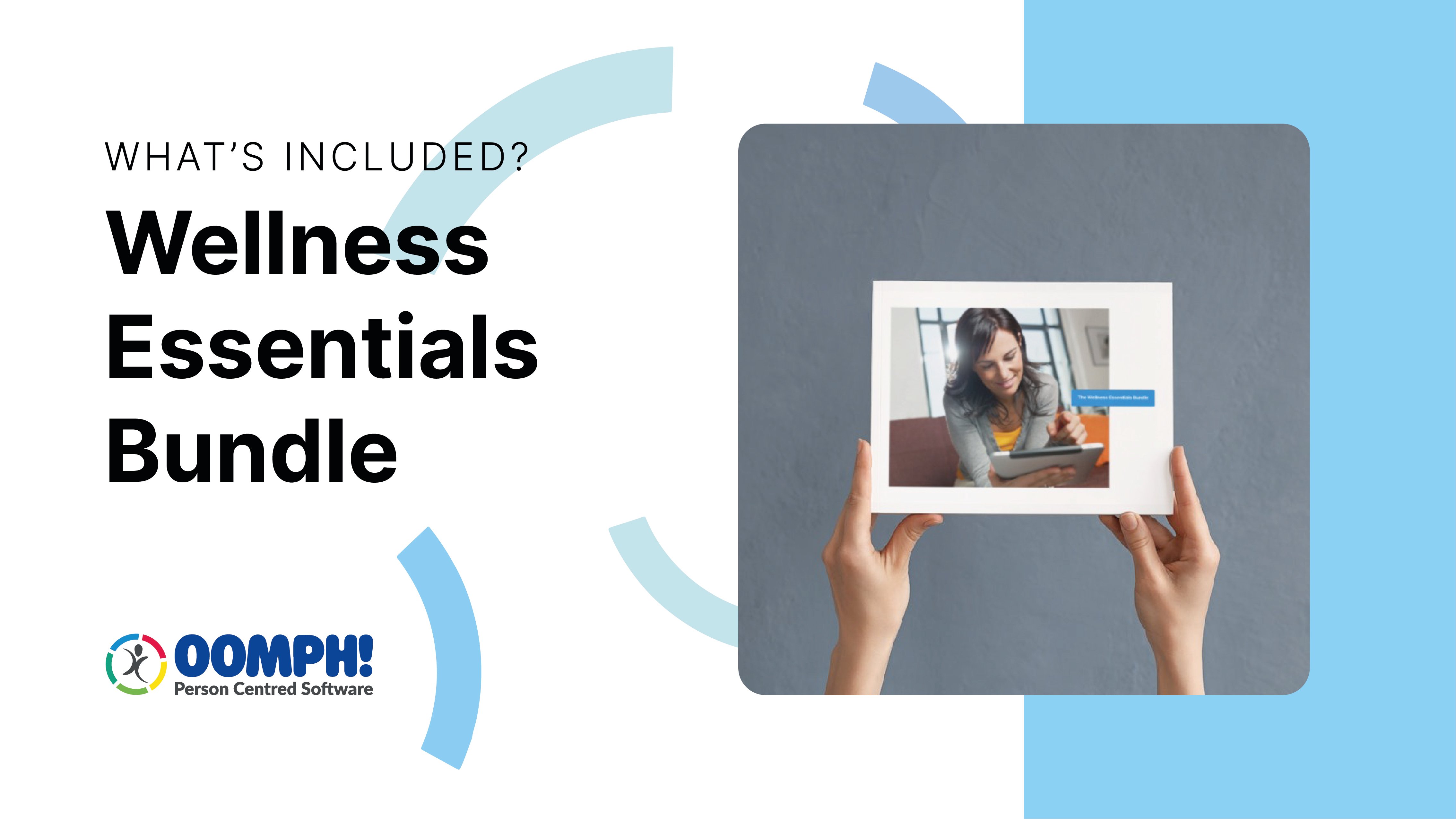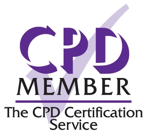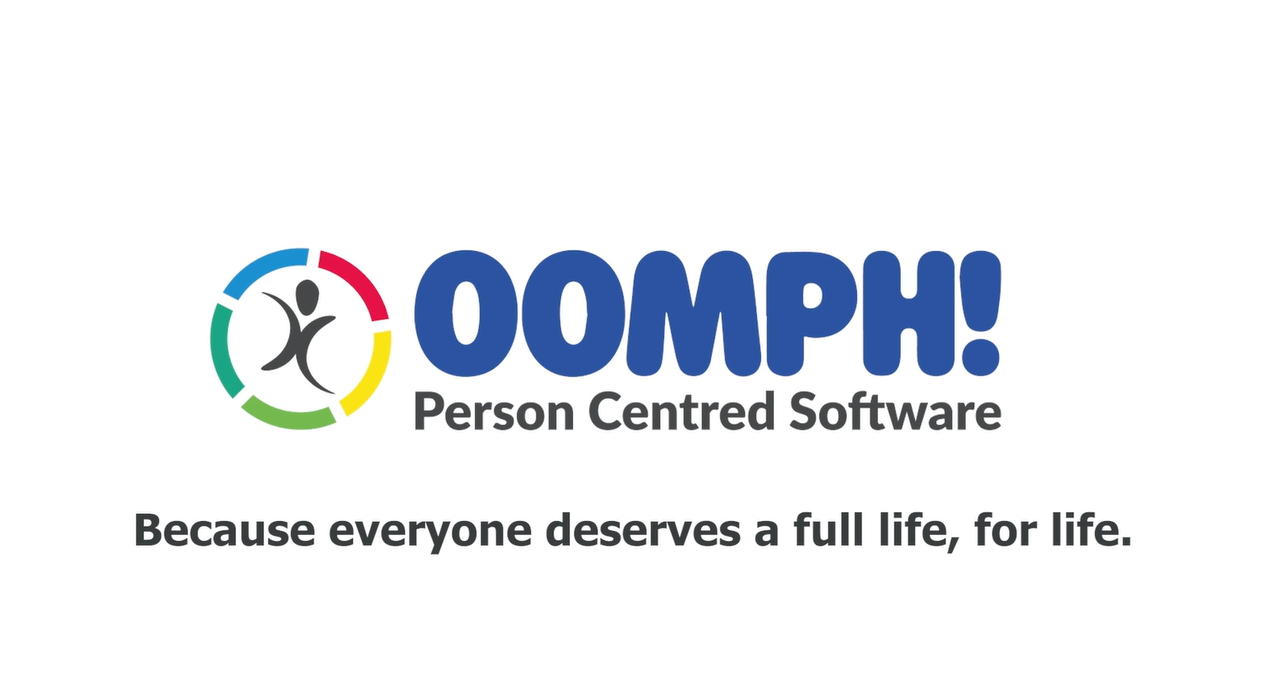Everything you need to know about our Wellness training courses, including what’s included and learning outcomes

The Wellness Essentials bundle is the foundation of Oomph! Wellbeing and Training for Staff, part of Person Centred Software’s learning management platform, PCS LEARN. It provides a whole home solution to the essentials of care delivery that is geared towards the wellbeing of residents.
In this wellness training bundle, there are 10 eLearning courses, each with a 30-minute duration, wherein you will have the opportunity to explore every facet of wellbeing care delivery and develop skills around areas such as mental health, effective communication, taking a person-centred approach, motivation, meaningful mealtimes and much more.
Whether you are a member of the care staff team or a care home manager, this course and the others that make up the bundles are designed to give you all the tools you need to progress through your learning journey.

All 10 of the eLearning courses are CPD Certified and can be used by all staff within the home. The CPD Certification Service was established in 1996, and is the world's leading and largest independent continued professional development accreditation institution operating across all industry sectors
Also included in the Wellness Essentials Bundle are:
- Unlimited learning pathways
- Full access to PCS LEARN
- Full suite of reporting tools
What are the courses of the Wellbeing Essentials Bundle? Just click on any of the titles below to find out more!
01 – Bringing the 5 Ways of Wellbeing to Life
02 – Considering the Mental Capacity Act in Relation to Wellbeing
03 – Delivering a Person Centred Approach to Wellbeing
04 – Effective Communication in a Care Setting
05 – Producing Meaningful and Positive Mealtimes
06 – Producing Meaningful Wellbeing Evidence for Inspection
07 – Recognising the Importance of Community Connections in Wellbeing
08 – Strategies for Empowerment and Motivation to Wellbeing
09 – The Principles of a Whole Home Approach to Wellbeing
10 – Tools and Techniques to Create a Safe Environment for Wellbeing
Course 01: Bringing the 5 Ways of Wellbeing to Life
In this course, you will have the chance to explore the concept of wellbeing and all the ways in which it plays a significant role in enhancing overall quality of life. During the course, you will delve into the 5 Ways to Wellbeing Framework which are important to understanding the different elements that contribute to wellbeing care.
What is the 5 Ways to Wellbeing Framework?
Step 1 – ConnectStep 2 – Get active
Step 3 – Take notice
Step 4 – Learn
Step 5 - Give
What are the learning outcomes?
At the end of this course, you will...
- Understand the concept of wellbeing and the important role it plays in improving resident quality of life
- Understand the 5 Ways Framework and its role in contributing to wellbeing
- Know how to best personalise wellbeing strategies according to individual needs
- Be able to recognise how activities improve wellbeing
- Know how to design meaningful activity programmes that promote happiness and fulfilment
Course 02: Considering the Mental Capacity Act in Relation to Wellbeing Activities
With this eLearning course, you will gain a deeper understanding of the Mental Capacity Act and you will learn about its significance in care settings. Moreover, this course will allow you to explore how the Mental Capacity Act relates to promoting wellbeing and how it relates to supporting individual autonomy while engaging in individually tailored activities.
This course will also cover essential aspects of safeguarding, which include identifying vulnerability and responding to abuse, along with the legal and ethical considerations involved in the planning of activities.
What are the learning outcomes?
At the end of this course, you will...
- Gain a greater understanding of the Mental Capacity Act, it’s principles and its application in care settings
- Be able to apply the principles of the Mental Capacity Act to promote and enhance the wellbeing of individuals living in care
- Demonstrate greater proficiency in assessing mental capacity of care home residents as well as making decisions on best interests
- Know how to implement appropriate safeguarding measures while respecting the rights and autonomy of individuals
- Be able to plan and conduct activities in a legally compliant and ethically responsible manner, while...
- Considering individual capabilities and preferences
- Be able to evaluate the effectiveness of activities in how they are improving overall wellbeing, and you will be able to then make necessary changes to ensure continued improvement
Course 03: Delivering a Person Centred Approach to Wellbeing
In this course, you will be lead through the essentials of person centred care, including the values and principles that define it. Additionally, you will have the opportunity to gain a greater understanding of the regulations and legislation pertaining to the delivery of person centred care and the impact it has on your role.
Also explored will be the various tools to support individuals in reaching their goals and aspirations. You will also learn how to incorporate evidence, such as case studies, to implement person centred action plans effectively.
What are the learning outcomes?
At the end of this course, you will...
- Understand person centred care and its principles
- Be able to effectively integrate person centred values into practice
- Understand the regulatory framework for person centred care
- Be able to develop comprehensive wellbeing plans for individuals
- Know how to utilise various tools to support person centred approaches to care
- Know how to use engagement tools to overcome barriers to participation
- Be able to empower individuals to make choices and provide consent
- Know how to best document and evidence outcomes of person centred plans
Course 04: Effective Communication in a Care Setting
This course will upskill you in understanding the challenges of communication that may be faced by someone living with dementia in a care setting. It will provide you with knowledge and understanding of techniques and practices that will enable you to deliver excellent quality of care to those you support while at the same time gaining a greater knowledge of how to recognise signs of distressed behaviour.
Areas such as brain function in communication will be highlighted, as will the use of verbal and nonverbal communication and techniques to provide a positive first approach.
What are the learning outcomes?
At the end of this course, you will:
- Gain a greater understanding of dementia and its effects
- Be able to differentiate normal behaviours from dementia-related challenges
- Be able to comprehend the functions of the temporal lobes in the brain
- Know how to identify and address distressed behaviours and unmet needs in individuals living with dementia
- Be able to use a person centred approach in the provision of care
- Understand and recognise the importance of effective communication
- Be able to document relevant information in care plans for individuals living with dementia
Course 05: Producing Meaningful and Positive Mealtimes
With this eLearning course, you will learn how to develop a holistic understanding of excellent mealtime outcomes in a care setting. Elements that will be covered in detail include how to enhance dining experiences, recognising the central role played by and importance of good nutrition, how to adapt for dementia care and best hydration practices.
This course will equip you with knowledge on how to provide exceptional care and create mealtime experiences that will foster wellbeing and fulfilment for the individuals for whom you care.
What are the learning outcomes?
At the end of this course, you will:
- Understand the key role played by proper nutrition and hydration for mealtime outcomes and general quality of life for individuals in care, especially for those living with dementia
- Understand and be able to recognise the risks posed by dehydration and its impact on the physical and cognitive functions of those living in care
- Understand how to improve mealtime experiences by knowing how to create a comfortable dining environment
- Gain a greater understanding of how to adapt mealtime practices depending on the unique needs of individuals living with dementia
- Be able to confidently implement effective strategies to improve hydration levels in residents and prevent dehydration
- Learn how to provide person centred care to enhance overall dining satisfaction and wellbeing
Course 06: Producing Meaningful Wellbeing Evidence for Inspection
This course will focus on how to enhance activities and produce meaningful wellbeing evidence for inspections through the use of life stories, personalised wellbeing plans and activity calendars. In this course, you will have the opportunity to explore the requirements of PAL documentation (Person, Assessment, Looking ahead), and how to effectively apply them to produce evidence for inspections.
Also explored in this course is the importance of regularly reviewing wellbeing plans to ensure continuous improvement, as well as generating evidence for inspections that demonstrates the positive impact of activities on the wellbeing of those living in care.
What are the learning outcomes?
At the end of this course, you will:
- Gain a greater understanding of how life stories positively impact activities and recognising how they contribute to meaningful evidence for inspections
- Understand the importance of incorporating life story information into activity planning
- Know how to effectively create personalised wellbeing plans that align with inspection requirements
- Gain greater knowledge of how to develop weekly activity programmes that focus on meaningful activities
- Understand the role of PAL in maintaining accurate documentation for inspections
- Be able to promote inclusion and monitor participation effectively to gather relevant evidence
- Appreciate and understand the value of regularly reviewing wellbeing plans to continuously improve the quality of evidence for inspections
Course 07: Recognising the Importance of Community Connections in Wellbeing
You will develop a deep understanding of community connections with this course, alongside gaining a greater knowledge of core values, person centred interactions, and effective community project planning.
By exploring these crucial topics, you will gain the knowledge and skills needed to foster inclusive communities and create a positive social impact in your care setting.
What are the learning outcomes?
After this course, you will:
- Have a greater understanding of community connection and its importance
- Understand how to identify different types of community connections and their benefits
- Understand how to explore strategies to build strong community connections
- Understand the significance of core values in community culture
- Be able to recognise common core values and their impact on communities
- Learn how to develop strategies to uphold core values and create an inclusive community
- Understand the importance of considering individual needs and preferences
- Be able to empower individuals in the community through inclusive decision-making processes
- Be equipped to explain the purpose and significance of community mapping
- Be able to identify community assets and resources for addressing challenges
- Know how to develop clear objectives and action plans for successful community projects
Course 08: Strategies for Empowerment and Motivation to Wellbeing
This course is designed to help you understand and master the principles of motivation, inspiration and effective time management. The course also delves into the concepts of motivation, differentiating intrinsic and extrinsic motivation, as well as how to best inspire and motivate others, implementing task-to-reward strategies and how to employ effective time management techniques.
Through this course, you will gain valuable insights and practical strategies that will enable you to enhance personal and professional productivity, achieve goals, and maintain motivation over the long-term.
What are the learning outcomes?
At the end of this course, you will:
- Have a greater understanding of the concept of motivation and its significance in personal and professional contexts
- Understand the differences between intrinsic and extrinsic motivation, along with learning how to leverage both types effectively
- How to inspire and motivate individuals by employing various strategies and effective communication techniques.
- Understand task-to-reward strategies and how to implement them to reinforce positive behaviours and enhance performance
- Learn how to demonstrate effective time management skills and improve productivity in daily activities
Course 09: The Principles of a Whole Home Approach to Wellbeing
This course will give you the opportunity to explore the significant impact of staff job roles on the lives of individuals- and how they contribute to improving quality of life. The course will give you the chance to study meaningful occupations and delve into the concepts of wellbeing, gaining insights into how certain occupations positively impact and influence people and promote overall happiness.
In so doing, you will have the opportunity to develop a deeper appreciation for the impact that all job roles play in shaping the lives and happiness of individuals.
What are the learning outcomes?
After this course, you will:
- Have a greater understanding of the ‘Whole Home Approach’ and its importance in comprehensive care
- Also have a greater understanding of the significance of ‘Happenings and Highlights’ for the wellbeing of individuals
- Learn how to plan and implement meaningful activities for people in care
- Understand the value of life stories in understanding individual needs
- Will be able to use life stories in understanding the needs of individuals
- Understand the importance of effective communication with positive language and open body language.
Course 10: Tools and Techniques to Create a Safe Environment for Wellbeing
With this eLearning course, you will be equipped with the essential skills to create a safe and empowering environment for older adults. You will have the chance to learn to differentiate between risks, hazards and controlled measures, and ultimately the process of conducting effective risk assessments.
This course emphasises the importance of risk-benefit assessments and maintaining a high quality of life for older adults. Through this course, you will learn about strategies to empower individuals and gain knowledge of relevant legislation. As well as this, the course promotes making safety a fun and inclusive experience!
What are the learning outcomes?
After this course, you will:
- Understand why a safe environment for older adults living in care settings is so important
- Understand the difference between a risk, a hazard and controlled measures
- Understand how to complete a risk assessment in relation to wellbeing
- Understand the importance of a risk-benefit assessment and how to complete one
- Understand how to best ensure quality of life and why this is a central component of assessments
- Understand how to implement initiatives to empower individuals
- Gain greater knowledge of the relevant legislation to ensure a safe environment for wellbeing
- How to make safety fun and inclusive for all
These 10 courses make up the Wellness Essentials bundle, which is one of the bundles available through the Wellbeing and Activities Training for Staff. Through these bundles, you will have the chance to gain a deeper, more rounded understanding of all the aspects that go into ensuring outstanding wellbeing care.
The Wellness Essentials Bundle, the Creativity Bundle, the Exercise Bundle and the Leadership Bundle are all available through Person Centred Software’s PCS LEARN platform.
Click here to book a demo to find out more about how PCS LEARN can aid in the learning and development of your entire care home.






